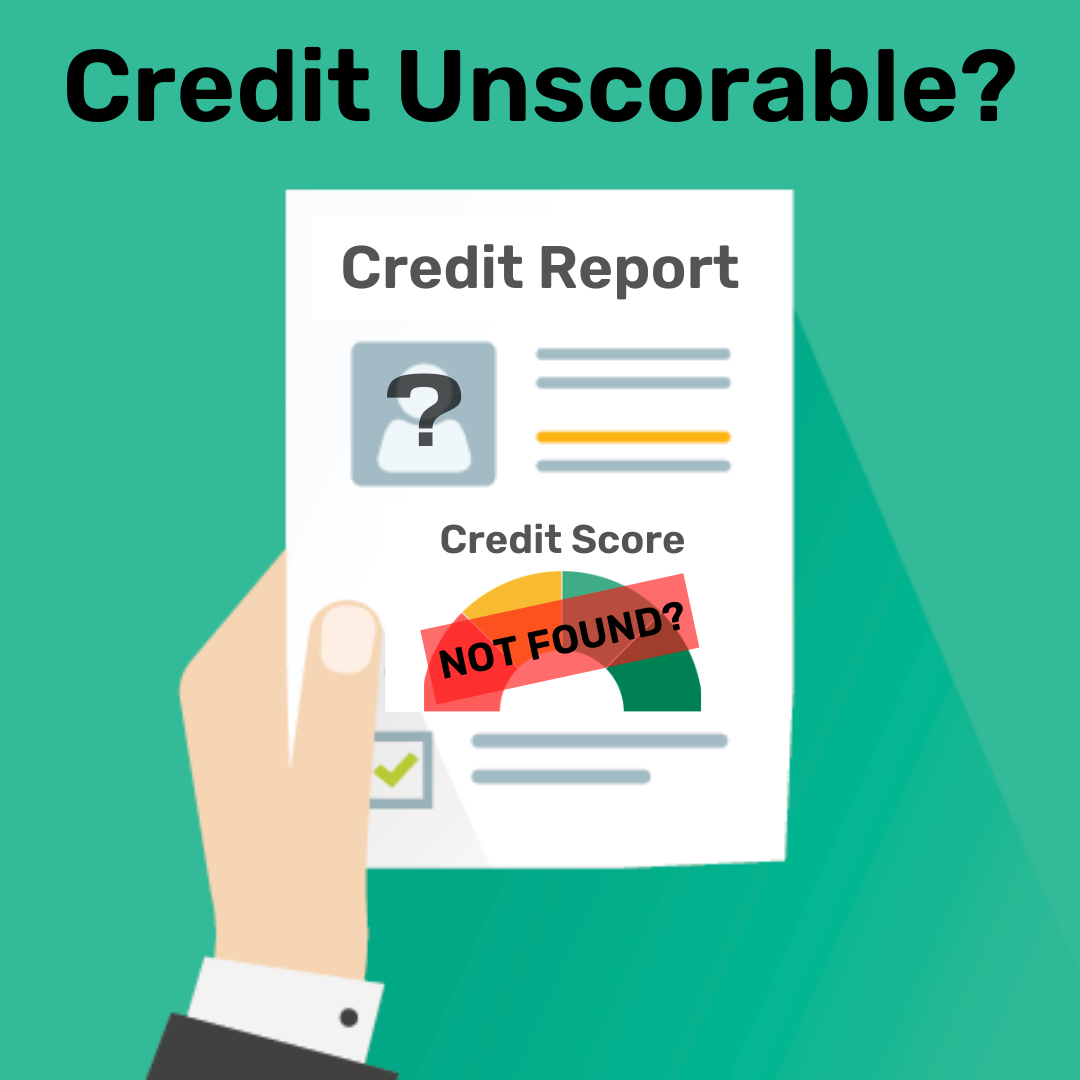What Does it Mean if You’re Credit Unscorable?
Credit Education , Credit ScoreRentReporters
May 25, 2021
7 mins read

About 45 million American consumers – maybe even you – are classified as credit unscorable. In other words, you have a limited or thin credit file, which means you have no credit score and credit agencies aren’t able to determine your credit risk. What does that mean? Quite simply, you’re probably new to using credit or haven’t recently used credit.
Having no credit score is not to be confused with having a low credit score or bad credit and doesn’t always mean a consumer has no credit history.
What are the minimum requirements for a credit score?
The minimum requirements for a credit score are going to depend on the scoring model you are looking at.
VantageScore’s credit scoring models, which are based on your TransUnion, Equifax, and Experian credit score will deem you “scorable” if you have an account with activity, even if the account has only been active for one month.
The Fair Isaac Corporation, which produces the FICO Score, is a bit more difficult to become “scorable”. FICO states that for a score to be generated, your credit report must have at a minimum, one account that has been opened for at least six months and one account — at least — that has been reported to the credit bureau within the past six months. So it is possible for a consumer to have a credit history but no credit score, as would be the case for consumers who pay off their debt and close their accounts.
Many algorithms and data used in today’s credit score calculation do not reflect our modern economic life, so more companies are using alternative data such as rent, utilities, child support, cash transactions, work salary/seniority, type of housing, and remittance history when making credit decisions.
We are now seeing significant innovation in the financial industry. The FICO Resilience Index is a new credit rating that, while it has been in the making for many years, was recently released due to the economic downturn caused by COVID-19. We are also seeing company after company looking to help the everyday consumer get credit for alternative data.

Take Our FREE Credit Literacy Quiz!
In just a few minutes, discover your credit knowledge level and get instant access to a FREE credit education course tailored to you!
How Does Being Credit Unscorable Impact Your Lending Opportunities?
If you are credit unscorable, there’s no need to fear, you’re not doing anything “wrong.” There are many reasons a consumer can be credit unscorable. Unfortunately, many financially vulnerable consumers fall under the ‘credit invisible’ or ‘credit unscorable’ categories. According to a report done by the Consumer Financial Protection Bureau, credit unscorables are commonly consumers in low-income neighborhoods, Black and Hispanic consumers, and young consumers. You can also be in this group because you recently graduated from school and are on your own for the first time, or perhaps you recently immigrated to the United States so you don’t have a credit history here yet.
As you may have experienced firsthand, having no credit score makes life more difficult because your access to financial products and services is limited.
Without a credit score, you can’t get an auto loan, mortgage, or an unsecured credit card because you don’t have a history of borrowing and repaying. You may even have difficulty being approved for a rental or getting utilities in your name without a costly deposit.
What Can I Do Today to Become “Scorable”?
Building credit takes time because credit scoring models consider how long you’ve been using credit and the average age of your accounts when calculating your credit scores, but becoming scorable is your first step.
Here are some things you can do to become “scorable”:
- Add alternative data to your credit profile: Services like RentReporters and ExperianBoost can help you add credit history to your credit report by doing what you’re already doing. RentReporters can add up to 24 months of your rent payment history to the credit bureaus. Experian Boost is a free service that gives Experian access to your bank records to identify your payments for streaming services like Netflix, utility, and cell phone bills. These payments are then added into your Experian credit report and included in your FICO 8 score.
- Take a moment to understand the credit: Before you go out there and apply for all these lines of credit, it’s important to first have a basic understanding of credit, scoring models, and the common credit myths out there. You don’t want to make mistakes when beginning your credit journey. Recovering from a bad credit score takes time, so it’s better to start off the journey on the best foot.
- Learn how to build and manage your credit profiles: Building your credit score when you’re credit invisible might feel impossible, but there are programs and tips available to help you get started. Once you have a few lines of credit open and you’ve built your credit score, managing your credit is vital, this includes, checking your credit reports regularly, preventing unhealthy habits that can harm your credit score, and finding ways to keep your finances under control.


